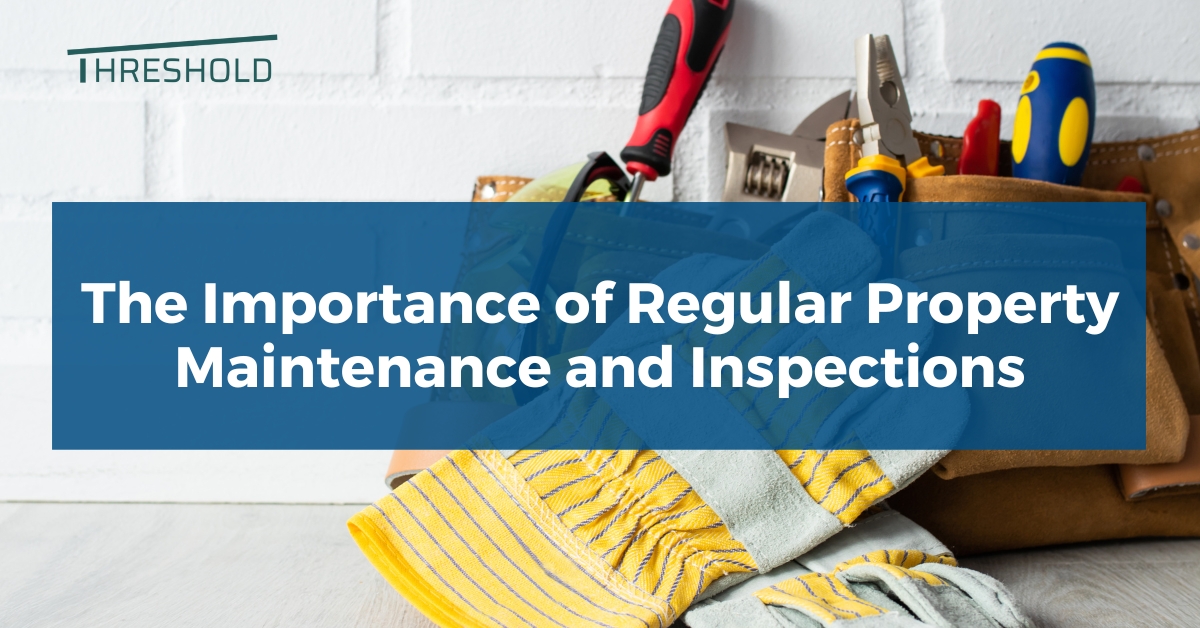Choosing a property management company to manage and maintain your property is a key decision that will shape the future of your investment.
What Makes a Good Property Management Company?
It’s about finding a professional who will enhance your property’s value, ensure tenant satisfaction, and expertly handle the legal complexities of property management.
This guide will simplify your journey to find a multifamily property manager who excels in managing residential properties. Whether you’re new to property investment or seeking to reconsider your current management approach, these tips will help you make an informed choice.
We focus on essential qualities such as proven experience, a deep understanding of the local market, credible referrals, valid licenses, and certifications. These strategies will guide you in selecting a professional property manager who meets your needs and is equipped to enhance your investment’s return.
Choosing A Multifamily Property Management Company: Roles and Responsibilities
A multifamily property manager does more than oversee daily operations; they coordinate various aspects of your property’s success.
Key Responsibilities of a Property Manager:
- Tenant Relations: They are the primary contact for tenants, addressing their needs and ensuring a high level of tenant satisfaction.
- Maintenance and Upkeep: Responsible for maintaining the property in top condition, they manage repairs and routine maintenance.
- Financial Management: From collecting rent to budgeting for property expenses, they handle all financial aspects, ensuring profitability and financial health.
- Legal Compliance: Navigating the complexities of property laws and regulations, they ensure your property adheres to all legal standards.
- Marketing and Occupancy: They strategize and execute property marketing efforts to maintain high occupancy rates and attract reliable tenants.
5 Tips For Choosing The Best Multifamily Property Management Company in South Florida
Each property manager brings unique skills and experiences, but how do you determine who’s best suited for your real estate investment?
How do you pinpoint a property manager that will elevate your property? Here, we’ll provide five key tips to help you select the best multifamily property manager for South Florida’s vibrant real estate market.
Tip 1: Conduct a Comprehensive Search Online and in person for the Right Property Manager
The rental market in South Florida is bustling with numerous property management firms, each offering different levels of service and expertise. The key to finding the best multifamily property manager starts with conducting a lengthy search.
Start by listing as many potential firms as you can. Once you have your list, research each firm thoroughly. Visit their websites, and look for:
- List of Services: Ensure they offer essential services like tenant screening and rent collection.
- Transparent Fee Structure: Check their fees, including any additional services they might charge for.
- Their Expertise: Evaluate the qualifications and experience of the property manager.
- Read Customer Testimonials: Read testimonials and tenant reviews to gauge satisfaction levels.
- Portfolio: Look at the properties they have managed or the ones they currently manage. How long have they managed multifamily properties? What’s their success story in dealing with tenant issues or maintenance challenges?
- Local Knowledge: Prioritize firms with local market knowledge in the region where you have your rental properties. For multifamily property owners in South Florida, choosing a firm with a strong presence and understanding of the South Florida market is essential. Their established understanding of the region’s market is crucial for effective property management.
A prospective manager should demonstrate a track record of success in managing various types of multifamily properties – apartments, duplexes, triplexes, or condos.
Tip 2: Evaluate Their Experience and Track Record
A property manager’s experience and track record indicate their ability to manage your multifamily property effectively.
When assessing a property manager’s experience and track record, ask them questions. These will help you gauge their expertise and suitability for managing your multifamily property.
Key questions to guide your evaluation when choosing a property management company:
Duration of Experience:
- How long have you been managing multifamily properties?
- Can you provide examples of properties similar to mine that you’ve managed?
Success Stories:
- What are some of your standout successes in property management?
- How have you improved the properties you’ve managed?
Tenant Relations:
- How do you handle tenant retention, conflicts, or complaints?
- What strategies do you use to retain tenants and maintain high occupancy rates?
Feedback and References:
- Can you provide references from owners of properties you’ve managed?
- Are there any client testimonials or case studies I can review?
Asking these targeted questions will give you a clear picture of the property manager’s experience and record it. This will ensure you choose a professional with proven success in managing multifamily properties, particularly in the South Florida market.
3: Gauge Their Local Market Knowledge
Local market knowledge is another vital factor when choosing a multifamily property manager in South Florida.
Why is Local Market Knowledge Crucial When Choosing a Property Manager or Company?
- Understanding of Rent Rates: A property manager familiar with the local market knows the current rental rates for different types of properties. They’ll set the right rent for your multifamily property to attract tenants while maximizing your rental income.
- Insights on Tenant Preferences: Knowledge of local demographics and preferences helps property managers tailor their marketing efforts to attract the right tenants. They know which amenities and features are in demand and can highlight them to attract tenants.
- Knowledge of Local Regulations: Every city and county has its own set of rental laws and regulations. Property managers with local market knowledge understand these regulations and ensure your property complies with them.
- Network of Local Service Providers: Established property managers have a network of reliable local contractors and service providers. This ensures prompt and efficient maintenance and repairs for your multifamily property.
When interviewing prospective property managers, inquire about their experience and knowledge of the South Florida rental market. A property manager with deep local market knowledge is better equipped to maximize your property’s profitability and mitigate risks.
Tip 4: Assess Their Communication and Responsiveness
Effective communication is essential for a successful landlord-property manager relationship. As a multifamily property owner, you need a property manager who keeps you informed and responds promptly to your queries and concerns.
Here’s how to assess a property manager’s communication and responsiveness:
- Response Time: During your initial interactions, observe how quickly they respond to your calls and emails. A prompt response indicates they prioritize communication and will likely be responsive when managing your property.
- Communication Style: Pay attention to their communication style and clarity. They should be able to explain complex property management concepts in simple terms. Clear communication fosters transparency and trust between you and your property manager.
- Accessibility: Ensure the property manager is accessible when you need them. They should provide multiple communication channels, such as phone, email, and a dedicated online portal.
- Reporting Practices: Inquire about their reporting practices. A good property manager provides regular updates on your property’s performance, including financial reports, maintenance activities, and tenant issues.
Effective communication is essential for resolving tenant issues, addressing maintenance concerns, and making informed decisions about your property. Choose a property manager who values communication and maintains open lines of communication with you.
Tip 5: Review Their Management Agreement and Fees Structure
Before signing a management agreement, review the terms and conditions, as well as the fee structure, carefully. The management agreement outlines the responsibilities of both parties and sets the framework for the landlord-property manager relationship.
Here’s what to look for in a management agreement:
- Services Provided: The agreement should clearly specify the services the property manager will provide, including tenant screening, rent collection, maintenance, and financial reporting.
- Duration of Agreement: Determine the duration of the management agreement. Most agreements have an initial term of one year, with provisions for renewal or termination.
- Fee Structure: Understand how the property manager’s fees are structured. Some property managers charge a flat fee, while others charge a percentage of the property’s rental income. Ensure there are no hidden fees or additional charges.
- Termination Clause: Check the termination clause to understand the process for ending the agreement if you’re dissatisfied with the property manager’s services.
- Legal Compliance: Ensure the management agreement complies with local rental laws and regulations. It should include provisions for security deposits, eviction procedures, and other legal requirements.
Reviewing the management agreement ensures you have a clear understanding of the property manager’s responsibilities and fees. It also helps prevent misunderstandings and conflicts down the line.
Conclusion
Choosing the right multifamily property manager is crucial for the success of your real estate investment. By following these five tips, you can select a property manager who meets your needs and maximizes the return on your investment.
Remember to conduct a comprehensive search, evaluate the property manager’s experience and track record, gauge their local market knowledge, assess their communication and responsiveness, and review their management agreement and fee structure.
With the right property manager, you can enjoy the benefits of passive income from your multifamily property while ensuring a positive experience for your tenants.






